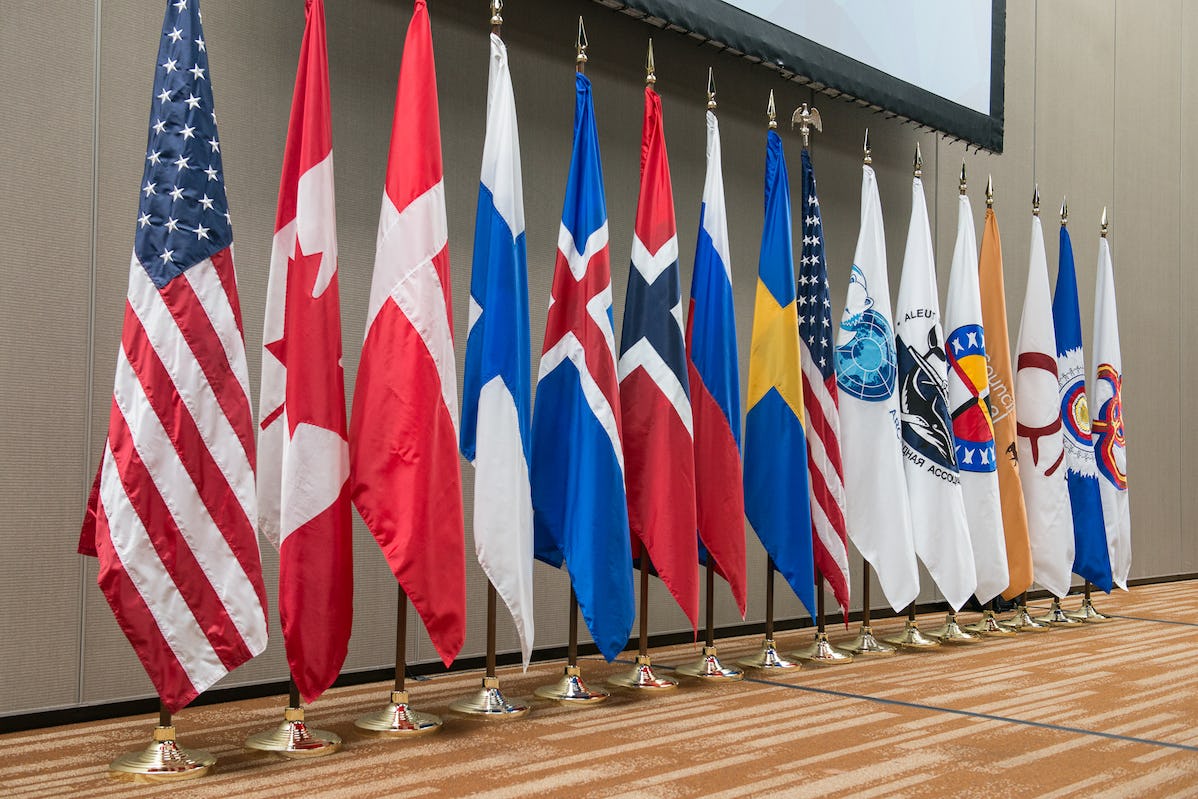The Future of Arctic Governance - El futuro de la gobernanza del Ártico

Flags of the eight Arctic states and six Permanent Participants at a Senior Arctic Officials’ US 2015-2017 Chairmanship meeting held in Anchorage, Alaska 20-22 October 2015. Photo: Arctic Council Secretariat / Linnea Nordström
Climate change is warming the Arctic three times faster than the global average in recent decades. Global economic and political forces interact in the region, transforming the Far North, a region historically considered a periphery, into an increasingly central zone in international relations. The growing global attention to the Arctic is seen in issues such as natural resource extraction, shipping, scientific research, and concerns for peace and security.
This changing Arctic and its consequent international importance raises new questions about the ability of Arctic governance to address the environmental, economic, social and geopolitical challenges that lie ahead in the region. Currently there is no international treaty that covers the entire Arctic Ocean, unlike what happens in its antipodes, in the extreme south, which is the subject of the so-called Antarctic Treaty System (ATS). In practice, the governance of the Arctic is due to an overlapping of institutions, organizations and international agreements.
The chapter is part of the Spanish-language CIDOB International Yearbook 2022, published by the Barcelona Centre for International Affairs (CIDOB) in October 2022. The full report can be found here.